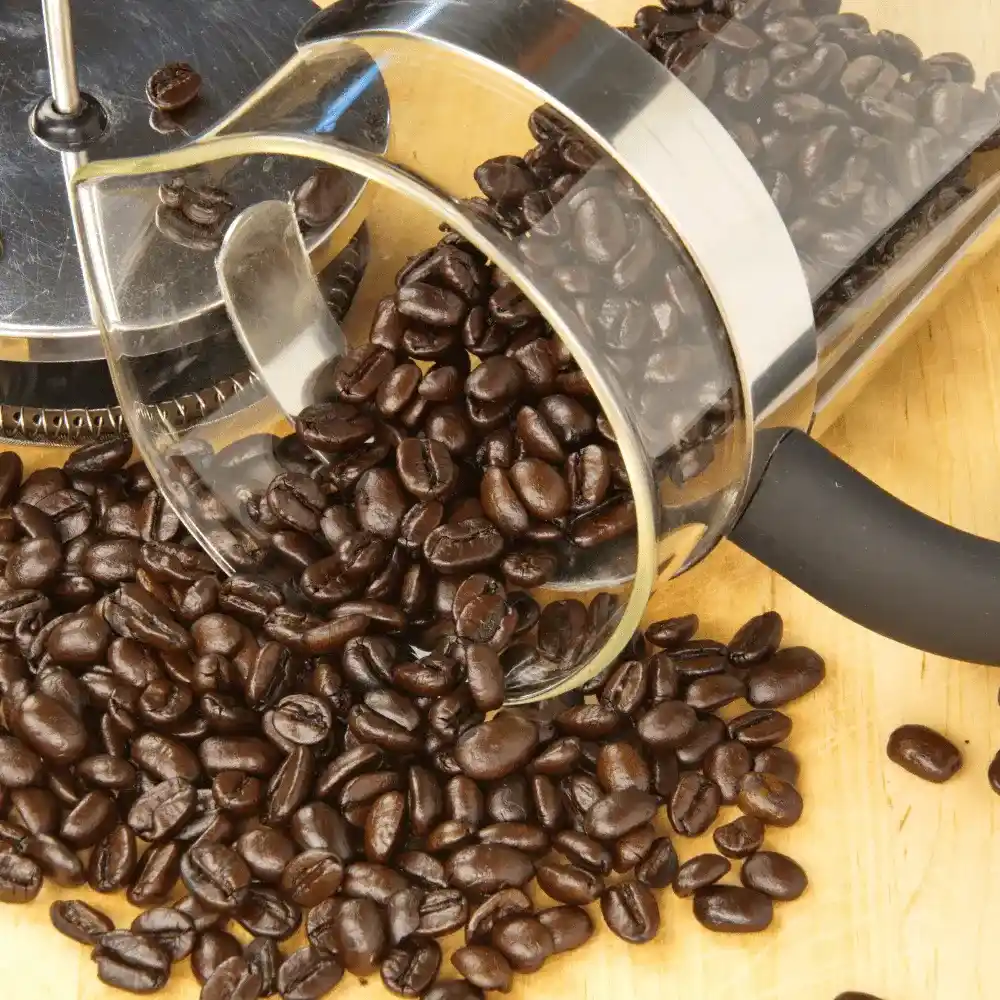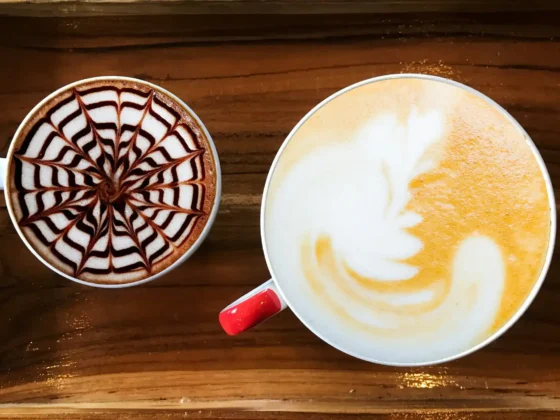In the realm of coffee, there is an unyielding pursuit for the most opulent flavors, genuine brewing techniques, and captivating aromas. If one has ever pondered over the query, “What is unfiltered coffee?” – the answer is poised to be a sumptuous experience. Unfiltered coffee is an obscure treasure trove that unlocks a plethora of unparalleled tastes and traditions, offering an idiosyncratic perspective on the coffee experience. While embarking on this journey with us through our Ultimate Guide to Flavor and Authenticity, one shall unravel the clandestine nature of this delectable coffee, its intricate and storied history, and the art of concocting the immaculate cup. So, without further ado, seize your most cherished coffee mug, lean back, and delve into the awe-inspiring world of this coffee.
Unfiltered Coffee: Key Takeaway
- Unfiltered coffee is a diverse category, encompassing various brewing methods like French press, Turkish coffee, and Ethiopian coffee ceremonies, each offering a unique and authentic taste experience.
- The flavor profile and aroma of this coffee differ from filtered coffee, providing a richer and more robust taste due to the presence of coffee oils and fine grounds.
- Brewing this concoction at home can be achieved using traditional techniques and proper equipment, ensuring an authentic and delicious cup of coffee.
- Health implications of this coffee consumption should be considered, as it can offer potential benefits but may also pose risks, such as increased cholesterol levels, for certain individuals.
- Sustainability and ethical considerations are vital when enjoying this type of coffee, including supporting fair trade and direct trade practices, as well as choosing environmentally friendly and socially responsible coffee producers.
The Unfiltered Coffee Experience
To unravel the enigmatic and exotic charm of this concoction, one must embark on a profound exploration of its beguiling genesis, inimitable variations, and distinctively evocative flavor profiles. Only then can one experience the ultimate culmination of this authentic and traditional coffee art form.
What is Unfiltered Coffee?

Unfiltered coffee, a salient and superlative coffee concoction, is a brewing method that does not employ paper or metal filters to separate the coffee grounds from the liquid. Instead, the coffee grounds bask in a state of symbiosis with the water, commingling and intermingling their exquisite flavors and aromas to produce a rich, bold, and full-bodied taste. This method of preparation is implemented in a multitude of unique ways, such as the renowned French press, the venerable Turkish coffee, and the rustic cowboy coffee. These techniques permit the natural oils and sediments to remain in the brew, lending this delectable coffee its distinguished taste and texture.
Filtered Coffee vs Unfiltered Coffee
Coffee is an expansive universe, with numerous brewing methods and techniques tailored to suit individual preferences. One of the most significant distinctions in coffee preparation is the choice between filtered and unfiltered coffee. By juxtaposing filtered coffee vs unfiltered, we can gain a deeper understanding of the nuances that render each method distinctive and its subsequent impact on flavor, aroma, and mouthfeel.

Filtered coffee, as its name suggests, entails passing hot water through ground coffee beans and a filter, usually composed of paper or metal. This process sifts out most of the coffee grounds, oils, and sediments from the final brew. Common methods for making filtered coffee include drip coffee makers, pour-over devices, and AeroPress. Filtered coffee is recognized for its cleaner, smoother taste, with a lighter body and more delicate flavors. The filtering process also clarifies the brew, resulting in a clear, transparent liquid that is visually appealing.
When comparing filtered coffee vs unfiltered, it’s crucial to consider personal preferences and desired outcomes. Filtered coffee may be more suitable for those who prefer a lighter, more refined taste, while unfiltered coffee caters to those who relish bold, rich flavors and a more textured mouthfeel. Furthermore, the brewing process for each method can vary in complexity and require equipment, which can influence one’s preferences.
Popular Unfiltered Coffee Varieties
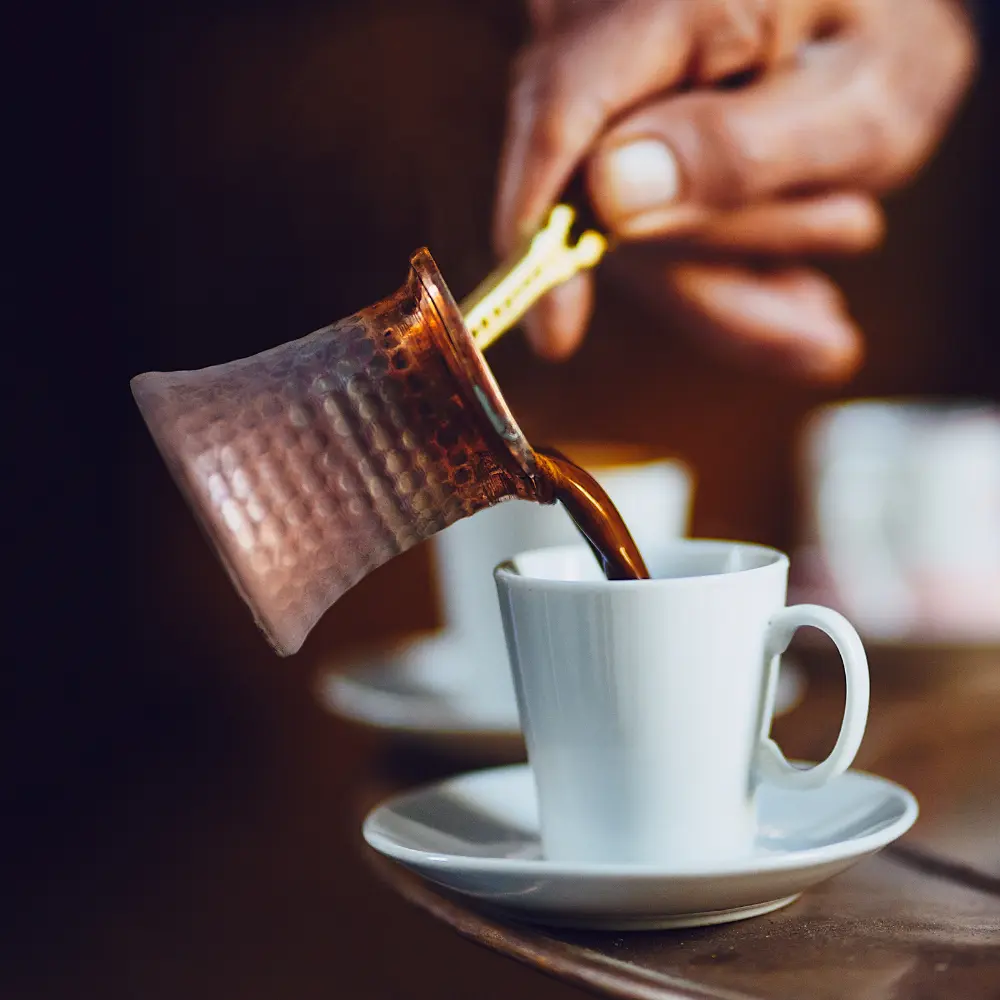
The vast and vivid world of this coffee concoction boasts a multitude of distinct and dynamic brewing techniques, each with its own cultural significance and unique flavor profile. Let us delve deeper into some of the most popular varieties of unfiltered coffee around the globe:
French Press: A beloved and bewitching brewing method, the French press (also known as a press pot or coffee plunger) involves steeping coarsely ground coffee in hot water before pressing a plunger with a metal or nylon mesh filter to extract the coffee from the grounds. This results in a robust, full-flavored coffee with a complex, multi-dimensional taste. (1)
Turkish Coffee: This traditional Middle Eastern coffee is a captivating and charismatic concoction made by boiling finely ground coffee with water and sugar (optional) in a special pot called a cezve or Turkish coffee pot. The coffee is then served unfiltered, with the grounds settling at the bottom of the cup. Turkish coffee’s alluring, strong, bold flavor and thick, frothy consistency have enraptured coffee enthusiasts for centuries. (2)
Cowboy Coffee: A rustic and rugged brewing method that has gained widespread popularity among campers and outdoor enthusiasts, cowboy coffee is made by boiling coarsely ground coffee with water in a pot or kettle. Once the grounds have settled, the liquid is carefully poured off, leaving the grounds behind. This method produces a potent and robust coffee with a distinctive, hearty taste.
The Flavor Profile and Aroma of Unfiltered Coffee

This brewing technique is renowned for its bold, intense flavor profile and rich, complex aroma. The absence of a filter allows the coffee’s natural oils, which contain much of its flavor, to remain in the brew. This results in a more full-bodied taste with deeper, more nuanced flavors. The coffee’s texture is also affected, with a thicker mouthfeel due to the presence of fine coffee particles suspended in the liquid. The aroma of this coffee is typically more pronounced, with a wide range of notes that can include chocolate, nuts, fruit, and spices, depending on the specific coffee beans and brewing method used. In essence, this delightful coffee experience offers a more immersive and authentic taste of the beans’ true essence, a sensory adventure for coffee aficionados seeking to indulge in the distinctive and beguiling nature of this coffee concoction.
Mastering the Art of Brewing Unfiltered Coffee at Home
Crafting this delectable coffee at home is an excellent way to discover and savor the authentic flavors and aromas of coffee beans. By mastering the traditional brewing techniques, selecting the appropriate equipment, and following expert tips, you can indulge in a remarkable coffee experience in the convenience of your kitchen.
The Art of Traditional Brewing Techniques

Several alluring and awe-inspiring traditional brewing techniques are employed to make this delectable coffee, each with its unique process and irresistible charm:
French Press
The French press, a captivating and classic brewing method, begins with using coarsely ground coffee beans with a coffee-to-water ratio of 1:15. The water should be heated to approximately 93–96 °C (199–205 °F), and then poured over the grounds while stirring gently to ensure even saturation. The coffee should steep for 4 minutes before the plunger is slowly and steadily pressed down to separate the grounds from the liquid. For an optimal experience, serve the coffee immediately to enjoy its full flavor and aroma.
Turkish Coffee
A timeless and tantalizing Middle Eastern coffee, Turkish coffee uses finely ground coffee beans with a texture resembling powdered sugar. Add the coffee, water, and sugar (optional) to a cezve, a small long-handled coffee pot, and heat it over low heat. Gently stir the mixture until the sugar dissolves. Allow the coffee to heat until it froths and rises before removing it from the heat before it boils. The coffee should be poured into small cups, and the grounds should be allowed to settle before serving.
Cowboy Coffee
A rustic and robust brewing technique that is popular among campers and outdoor enthusiasts, cowboy coffee uses coarsely ground coffee beans with a coffee-to-water ratio of 1:16. Bring the water to a boil in a pot or kettle, then remove it from the heat and add the coffee grounds. Stir the mixture and let it steep for 4-5 minutes. To help the grounds settle, a splash of cold water can be added, or the side of the pot can be tapped. Carefully pour the coffee into cups, avoiding the grounds at the bottom for a delightful and delectable coffee experience.
Equipment for the Perfect Unfiltered Coffee at Home
Investing in the right equipment is crucial to achieving the best coffee experience at home:
- French Press: A high-quality French press with a stainless steel or glass body and a sturdy plunger with a fine metal or nylon mesh filter is essential for creating a smooth and satisfying cup of coffee.
- Turkish Coffee: To brew traditional Turkish coffee, obtain a cezve, preferably made of copper or brass, with a long handle and a small pouring spout. Traditional Turkish coffee cups, known as fincans, are also recommended to enhance the experience.
- Cowboy Coffee: A simple pot or kettle with a wide mouth and a handle are all you need for this rustic brewing method. You may also want to use a mesh strainer to help separate the grounds when pouring.
Tips for an Authentic Unfiltered Coffee Experience

To create the perfect cup of joe at home, keep these expert tips in mind:
- Begin with using fresh, high-quality coffee beans that have been roasted within the past two weeks and grind them just before brewing to maximize flavor and aroma.
- Experiment with the coffee-to-water ratio, grind size, and brewing time to find the perfect balance that suits your taste preferences and brings out the unique flavor and aroma of the beans.
- Use clean, filtered water heated to the appropriate temperature for each brewing method. For French press and cowboy coffee, the water should be around 205°F or 96°C, while for Turkish coffee, it should be just below boiling.
- Clean your equipment thoroughly after each use to ensure optimal flavor and prevent any build-up of oils or residue.
- Take the time to enjoy your coffee drink in a serene and relaxing environment, savoring the rich flavors and aromas that make this coffee experience so exceptional.
Health Implications of Unfiltered Coffee
With the ongoing debate about whether unfiltered coffee is bad for you, the health implications of this beverage have been a topic of interest for coffee lovers and health professionals alike. By weighing the potential benefits and risks associated with this type of coffee and understanding its impact on cholesterol, individuals can make informed decisions about incorporating it into their daily routine.
Potential Benefits of Drinking Unfiltered Coffee

This coffee proffers several possible health benefits owing to its copiousness of antioxidants, nutrients, and innate compounds:
- Antioxidants: The levels of antioxidants in this coffee drink, such as chlorogenic acid and polyphenols, have the potential to provide fortification to the body against oxidative stress and curtail inflammation.
- Cognitive Function: The caffeine content in this coffee potentially facilitates augmenting cognitive function, enhancing alertness, concentration, and mental performance while reducing the peril of cognitive degeneration.
- Mood and Energy: Studies reveal that frequent coffee consumption can be associated with mitigated risk of depression, bolstered overall mood, and heightened energy levels.
- Potential Metabolic Benefits: Certain research suggests that coffee consumption may be linked to diminished risk of type 2 diabetes and ameliorated insulin sensitivity.
Potential Risks and Precautions

Despite the potential benefits of this delectable coffee, some risks and precautions must be considered. These include:
- Unfiltered Coffee and Cholesterol: Unfiltered coffee contains higher amounts of cafestol and kahweol, two compounds that have been demonstrated to increase LDL (bad) cholesterol levels. Individuals with high cholesterol or those at risk for heart disease may need to exercise caution. (3)
- Caffeine Sensitivity: Some people may be sensitive to caffeine, leading to symptoms like jitteriness, anxiety, or sleep disturbances. Monitoring caffeine intake and adjusting it based on tolerance is crucial.
- Gastrointestinal Issues: this coffee’s acidity and the presence of coffee grounds may cause gastrointestinal discomfort or exacerbate acid reflux in some individuals. (4)
- Potential Contaminants: The absence of a filter in this coffee’s brewing methods may increase the risk of exposure to contaminants like mycotoxins or heavy metals present in some coffee beans. Choosing high-quality, responsibly sourced beans can help mitigate this risk.
Comparing Health Implications Between Unfiltered Coffee vs Filtered Coffee

Comparing the health implications of unfiltered coffee to filtered coffee reveals some noteworthy differences to consider:
- Cholesterol: As mentioned earlier, unfiltered coffee contains higher concentrations of cafestol and kahweol, which can raise LDL cholesterol levels. Filtered coffee, in contrast, has lower concentrations of these compounds, making it a preferable choice for individuals concerned about cholesterol.
- Mouthfeel and Acidity: Unfiltered coffee has a thicker mouthfeel and may be more acidic, which could lead to gastrointestinal discomfort in some individuals. Filtered coffee, on the other hand, offers a smoother, lighter taste and is generally less acidic.
The Influence of Unfiltered Coffee in Global Culture
This coffee brewing technique’s impact on global culture is substantial, with its presence in art, literature, and the rise of specialty coffee shops, along with its essential role in coffee-producing countries. By delving into these cultural aspects, we can gain a better understanding and appreciation of the diverse and influential nature of unfiltered coffee worldwide.
The Significance of Unfiltered Coffee in Coffee-Producing Countries
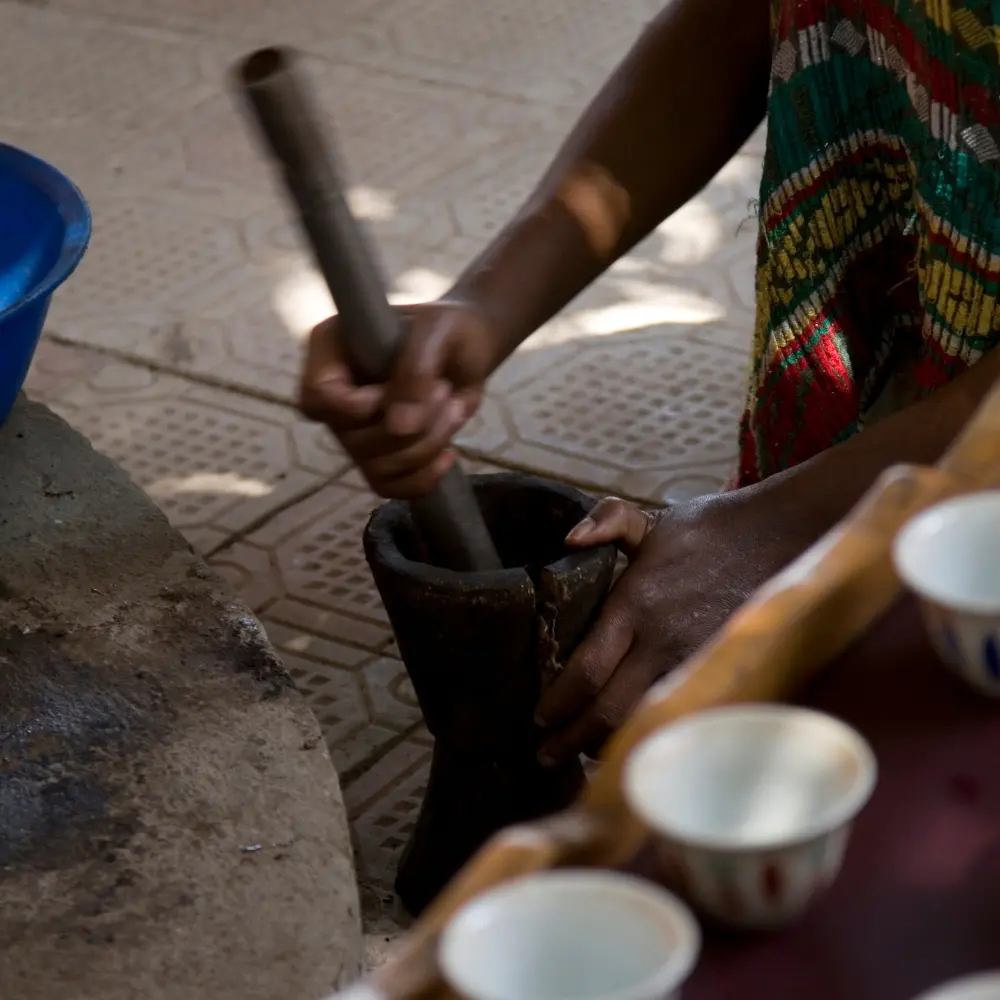
This coffee concoction has deep roots in the customs and traditions of coffee-producing countries, where it holds a significant place in their culture:
- Ethiopia: Ethiopia, considered the birthplace of coffee, boasts a rich coffee culture centered around the traditional coffee ceremony. The ritual involves roasting, grinding, and brewing coffee beans in a jebena (a clay pot), resulting in a strong, unfiltered brew that is an integral part of Ethiopian social life. (5)
- Turkey: Turkish coffee, a thick and unfiltered brew, has been an indispensable part of Turkish culture for centuries. It is often prepared in a cezve and served with great ceremony, symbolizing hospitality and friendship.
- Scandinavian Countries: The French press and the Nordic “kokekaffe” (similar to cowboy coffee) have been integral parts of coffee brewing methods in Scandinavian countries like Sweden and Norway for a long time. These unfiltered brewing methods contribute to the rich coffee culture in these regions.
Unfiltered Coffee’s Influence on Art and Literature
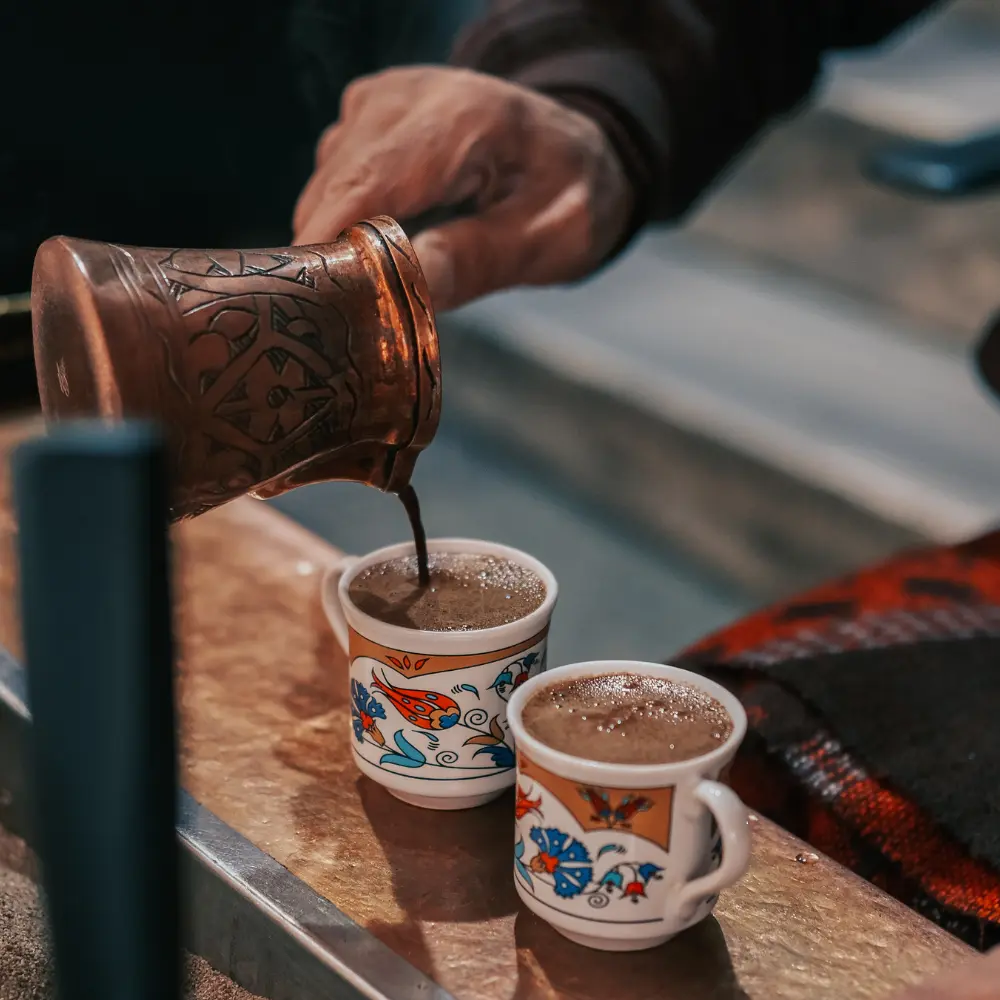
This delectable coffee has been a source of inspiration for many artists and writers, reflecting its cultural significance in various regions:
- Turkish Coffee in Art: The intricate process of making Turkish coffee has captivated painters and photographers, who have depicted the brewing process, the characteristic foam, and the traditional serving style in their art.
- Coffeehouses and Literature: Historic coffeehouses have been places of intellectual and social exchange frequented by writers, philosophers, and artists. These establishments have been immortalized in literature, from Balzac’s “The Coffeehouse of Surat” to countless references in the works of famous authors like Ernest Hemingway and Fyodor Dostoevsky.
The Emergence of Unfiltered Coffee in Specialty Coffee Shops
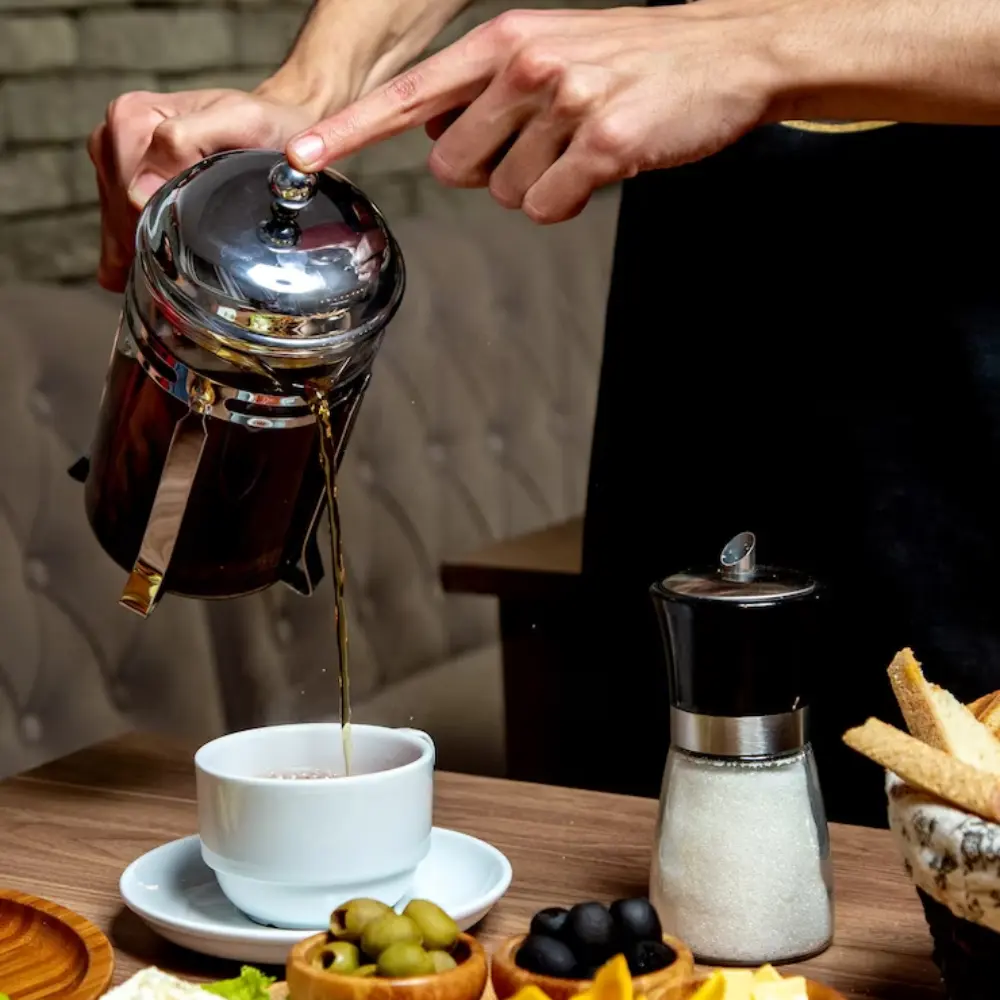
In recent years, there has been a resurgence of interest in unfiltered coffee in the specialty coffee scene:
- Artisanal Techniques: Specialty coffee shops are increasingly offering unfiltered brewing methods, such as the French press, alongside pour-over and espresso options. These methods highlight the craftsmanship of coffee preparation and showcase the unique flavors and characteristics of the beans.
- Coffee Education: Many specialty coffee shops are dedicated to educating their customers about coffee’s diverse origins, flavors, and brewing methods. Unfiltered coffee plays a crucial role in this education, providing a different perspective on the coffee experience compared to more common filtered methods.
- Cultural Exchange: The rise of this coffee concoction in specialty coffee shops emphasizes the cultural exchange and appreciation of different coffee traditions from around the world. By embracing unfiltered brewing methods, these establishments pay homage to the rich history and cultural significance of coffee in various regions.
Sustainability and Ethical Considerations of Unfiltered Coffee
Sustainability and ethical considerations are crucial when it comes to any coffee brewing method, including unfiltered coffee. By examining the environmental impact, fair trade, and direct trade practices, and supporting sustainable coffee producers, we can ensure that our love for this delightful coffee aligns with our commitment to a more sustainable and ethical coffee industry.
The Environmental Impact of Unfiltered Coffee

This coffee’s brewing methods can have varying environmental impacts, depending on the method and equipment used:
- Waste Reduction: Brewing methods like the French press, Turkish coffee, and cowboy coffee do not require disposable paper filters, which reduces waste and promotes sustainability. Reusable metal filters, often used in these brewing methods, can be cleaned and reused, further minimizing waste.
- Energy Efficiency: This coffee’s brewing methods typically involve manual processes and simple equipment, often requiring less energy than electric drip coffee makers or espresso machines.
- Coffee Grounds: Used coffee grounds from unfiltered brewing methods can be composted or repurposed in various ways, such as natural fertilizers or as an ingredient in homemade skincare products.
Fair Trade and Direct Trade Practices

Unfiltered coffee drinkers can support sustainable and ethical coffee production by choosing beans from producers who practice fair trade or direct trade:
- Fair Trade: Fairtrade certification ensures that coffee farmers are paid a fair price for their beans, enabling them to maintain a sustainable livelihood. Fairtrade practices also include environmental sustainability and social responsibility standards.
- Direct Trade: Direct trade involves a direct relationship between coffee producers and buyers, ensuring fair prices and sustainable practices. This approach fosters long-term relationships and enables coffee producers to invest in their farms and communities.
By choosing fair trade or direct trade coffee, coffee drinkers can contribute to a more sustainable and ethical coffee industry.
Supporting Sustainable Coffee Producers
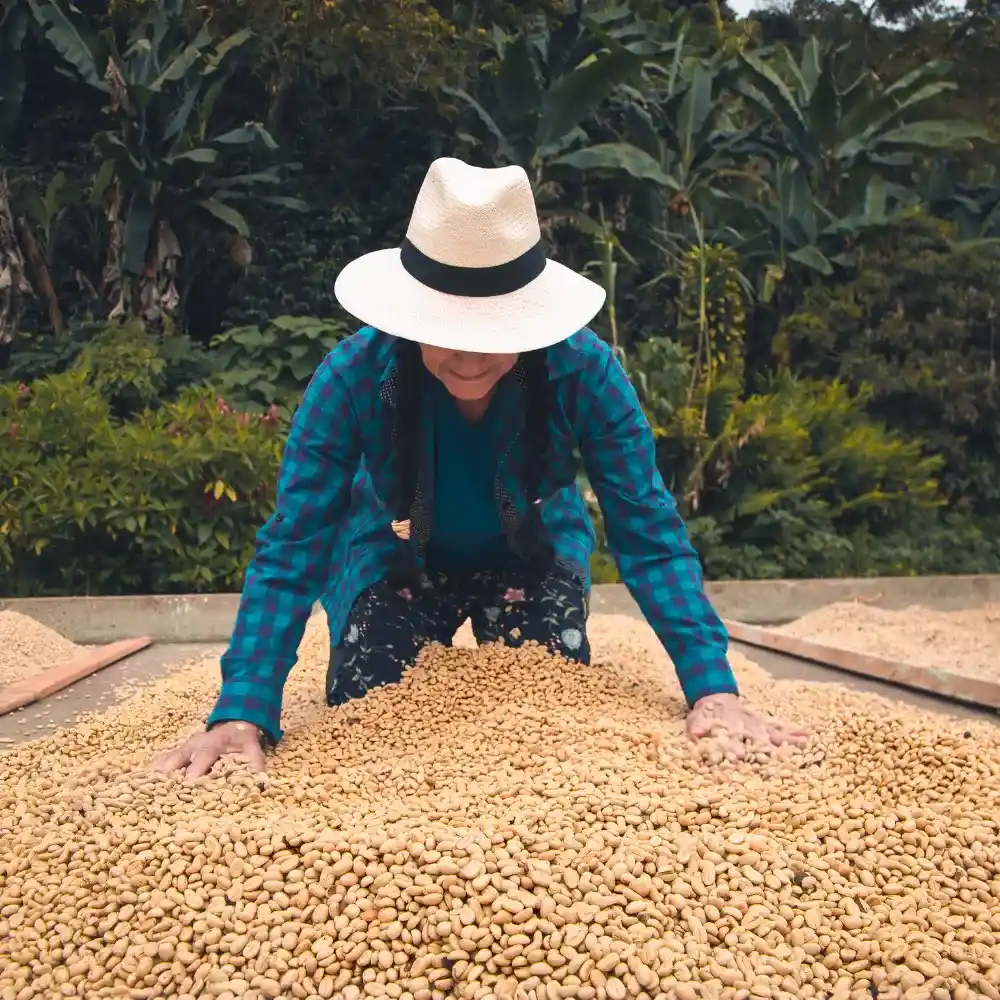
When enjoying this delectable coffee, it is crucial to support sustainable coffee producers that prioritize environmentally friendly and socially responsible practices:
- Organic and Shade-Grown Coffee: Opt for coffee beans that are organically grown and shade-grown, as these practices minimize the use of harmful pesticides and promote biodiversity in coffee-growing regions.
- Water Conservation: Support coffee producers that implement water-saving practices in their farming and processing methods, as water conservation is a critical issue in many coffee-producing regions.
- Community Development: Seek out coffee producers that prioritize community development and social responsibility, investing in education, healthcare, and infrastructure for the communities in which they operate.
By considering the sustainability and ethical aspects of this delectable coffee, we can enjoy this unique brewing method while also contributing to a more responsible and environmentally friendly coffee industry.
Conclusion
In conclusion, delving into the world of unfiltered coffee offers a unique and authentic coffee experience, with diverse brewing methods, cultural significance, and potential health implications to consider. It’s crucial to prioritize sustainability and ethical practices when consuming this delightful coffee, aligning our love for this distinct beverage with responsible consumption. By embracing this coffee’s rich history, we can celebrate the traditions, savor the robust flavors, and appreciate the craftsmanship that makes this coffee experience truly special.
FAQ
How do unfiltered coffee brewing techniques differ across cultures?
This coffee’s brewing techniques vary across cultures and reflect the unique coffee traditions of each culture. From Ethiopian coffee ceremonies using a jebena to Turkish coffee prepared in a cezve, and Scandinavian methods like the French press and "kokekaffe," each brewing method is a reflection of the cultural nuances, traditions, and history.
What is the ideal grind size for brewing unfiltered coffee?
The ideal grind size for brewing this coffee depends on the specific method used. Turkish coffee requires a superfine grind, while the French press calls for a coarser grind to prevent grounds from slipping through the filter. Each brewing method requires a unique grind size that contributes to the distinct flavors and aromas of the coffee.
How does water quality affect the taste of unfiltered coffee?
Water quality significantly affects the taste of your coffee drink, as impurities or added minerals can alter the flavor profile. Using filtered or bottled water can result in a cleaner, more balanced taste, bringing out the subtle flavors of the coffee.
Can unfiltered coffee be made with alternative milk options?
This coffee concoction can be made with alternative milk options such as almond, soy, or oat milk, but keep in mind that the texture and flavor of the coffee may change depending on the milk alternative used. Experimenting with different milk alternatives is a fun way to discover new flavor combinations and personalize your coffee experience.
Are there any certifications to look for when purchasing unfiltered coffee beans?
When purchasing coffee beans, look for certifications like Fair Trade, Organic, and Rainforest Alliance, which ensure ethical and sustainable production practices. These certifications prioritize the well-being of farmers, workers, and the environment, ensuring that your coffee comes from a responsible and trustworthy source.










